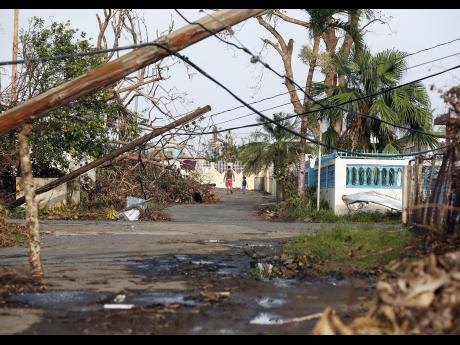Aid lags in Puerto Rico after hurricane
MONTEBELLO (AP):
Relatives helped Maribel Valentin Espino find shelter when Hurricane Maria roared through her community in northern Puerto Rico. Neighbours formed volunteer brigades to cut fallen trees and clear twisty mountain roads after the storm had passed. Now, friends and a local cattle ranch provide the water they need to survive in the tropical heat.
Valentin and her husband say they have not seen anyone from the Puerto Rican government, much less the Federal Emergency Management Agency (FEMA), since the storm tore up the island on September 20, killing at least 16 people and leaving nearly all 3.4 million people in Puerto Rico without power and most without water.
"People say FEMA is going to help us," Valentin said Tuesday as she showed Associated Press journalists around the sodden wreckage of her home. "We're waiting."
Many others are also waiting for help from anyone from the federal or Puerto Rican government. But the scope of the devastation is so broad, and the relief effort so concentrated in San Juan, that many people from outside the capital say they have received little to no help.
Valentin, her husband and teenage son live in one such area, Montebello, a 20-minute drive into what used to be lushly forested mountains near the northern coastal municipality of Manati. Hurricane Maria's Category 4 winds stripped the trees bare and scattered them like matchsticks. "It seemed like a monster," she recalled.
The roads are passable now, but the community is still isolated. "Nobody has visited, not from the government, not from the city, no one," said Antonio Velez, a 64-year-old who has lived there his entire life.
The same complaint echoed throughout the southeast coastal town of Yabucoa, the first town Maria hit as it barrelled across the island with 155mph winds.
"Nothing, nothing, nothing," said 58-year-old retiree Angel Luis Rodriguez. "I've lost everything, and no one has shown up to see if anyone lives here."
At a nearby river, dozens of people gathered to bathe and wash clothes as they grumbled about the lack of aid.

